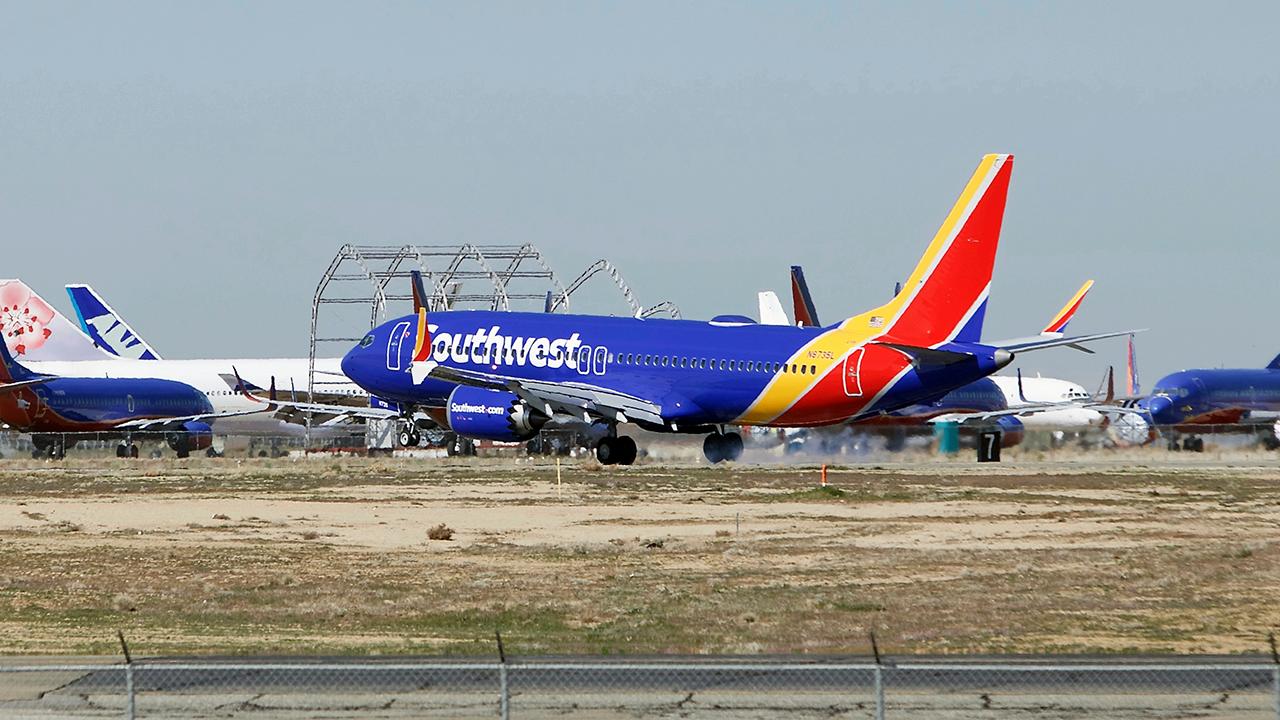Boeing's 737 Max jet crisis hits profits, 2019 outlook delayed
Boeing's earnings fell in the first quarter as the beleaguered Chicago-based manufacturer looks to overcome the fallout after one of its most popular planes was involved in two recent crashes, leading to a global halt in operations and hiatus on new orders.
In a statement, CEO Dennis Muilenburg said the company is focused on returning the 737 Max to service and "re-earning the trust and confidence of customers, regulators and the flying public."
"Our attention remains on driving excellence in quality and performance and running a healthy sustained growth business built on strong, long-term fundamentals," he said.
Boeing is launching an independent committee to examine the policies that govern the design and manufacturing of new aircraft and provide recommendations to improve the processes.
| Ticker | Security | Last | Change | Change % |
|---|---|---|---|---|
| BA | THE BOEING CO. | 243.03 | +6.08 | +2.57% |
Meanwhile, commercial airplane deliveries fell 19 percent in the first quarter to 149 units. Despite the decline, Boeing says it has an order backlog of over 5,600 airplanes, totaling $399 billion, indicating a healthy demand in the face of the 737 Max scandal.
The company previously said it would cut its monthly production of the Max jet, from 52 to 42. Muilenburg told investors it would examine whether "further rate adjustments are needed."
Airplane sales make up a majority of the firm's earnings, but Boeing has a number of other divisions that help can help compensate for a slowdown in demand. Sales in its defense sector, for example, rose 2 percent due to higher orders of satellites, weapons and surveillance aircraft, while servicing revenue grew 17 percent to $4.6 billion.
Overall, revenue in the three months through March dropped 2 percent to $23 billion. Meanwhile, profits slipped 21 percent to $1.98 billion, or $3.16 per share. Both were in-line with analysts' projections.
Boeing's 737 Max jet is grounded in countries across the globe after the Ethiopian Airlines and Lion Air crashes, leading to a loss of more than $1 billion in the first quarter, the company said. Total costs could exceed $3 billion, which would include payouts to families of the deceased in the crashes and reimbursements to airlines for lost profits due to the interruption in operations of the Max.
The firm is working on a software patch to address the underlying issues with the fleet, namely an erroneous "angle of attack" sensor that led to the activation of an auto-pilot system intended to prevent stalling during take-off. It has not yet been submitted to the Federal Aviation Administration for review.
Boeing has conducted 135 test flights with the update and 90 percent of the carriers that operate the Max have participated in simulator sessions, according to Muilenburg.
To address potential customer concerns with the Max after federal approvals are obtained, Boeing is working with carriers on an individual basis to craft public relations strategies. Another key voice will be pilots, Muilenburg said.
"That bond between the passenger and the pilot is one that is critical, so we are working with our airline customers and those pilot voices to ensure that we can build on that going forward," he told investors.
As a result of the halt in operations, Boeing pulled its 2019 earnings guidance, telling investors new projections will be issued at a future date.
CLICK HERE TO GET THE FOX BUSINESS APP
CFO Greg Smith told investors the company's earnings will continue to suffer until the software update is approved, accepted by carriers and deliveries resume.
"We have initiated comprehensive daily oversight into factory health, such as [the] reduction in jobs behind schedule," he said. "




















